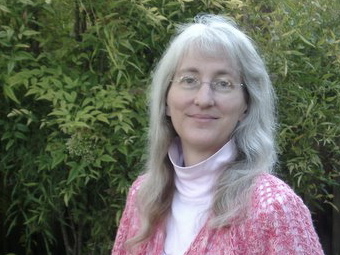 A book or the baby blanket project…
A book or the baby blanket project…
“When Breath Becomes Air” won. Written by Paul Kalanithi, whom I first stumbled across in a New York Times article. He trained as a neurosurgeon at Stanford alongside our friend Jason, which I knew was going to make the book feel very personal. I watched Jason’s family go through that hard long slog; when Jason’s training was finally over, he took a job in upstate New York and his wife Sheryl, who loved to garden and did what she could while living in a rental here, gifted me with several large flower pots when they left. I have raspberries in one and a squirrel-surprise fig seedling in another to remember them by.
When Kalanithi wrote of going out with his wife to a great barbecue place, I thought, I just bet you that was Armadillo Willy’s. California does not do barbecue like the South does but that’s the one place I know of that tries.
Kalanithi wrote about what it’s like to be diagnosed with stage four lung cancer at 36 when you’re so close to achieving all that you’d hoped and worked towards but then life flips the tables over and everything spills off.
I remember Jason coming into church once, which was always notable because during those residency years he so often couldn’t take the time off to. He looked down, and it could have been just the endless hours of it all–and yet.
So I asked him.
And he, knowing that I knew the inside of Stanford Hospital well, just spilled: he’d had a patient, a lovely woman, cheerful, happy, healthy all her life, (and it was clear he really admired her and loved her) and all the sudden there she was needing brain surgery and bam just like that despite all his training, despite all his years of preparation to be able to help other people in moments like this, there was suddenly no more they could do and to his great surprise she was gone. Gone. How. It had just happened and he hadn’t had time to process it yet. He wasn’t sure right then that he could process it–it just didn’t compute. Sixty years old–so young.
Looking at this love of a human being himself, my reaction surprised him. I was in my early fifties, so an endpoint that seemed so close to him in his thirties was a lot closer to me. But still, I was going, Sixty. She made it to sixty in good health. How would it be! I marveled rather than ached, and told him, That’s really cool, I’m so happy for her. I’m sorry she’s gone but I’m glad she had such a good life!
I was picturing all the things one could do if, say, one could be a normal person who could be out in the sun. No lupus. No Crohn’s. You could travel. You could go to the beach and not just right at sundown. You could play with your grandkids on the grass at noon, you could celebrate in any way and at any time you wanted and the fact that she was such a good person while living that life… And then blink and it’s over and you don’t even have to do much of the suffering part in between.
To have that reaction out of someone so close to his patient’s age–that was exactly what Jason had needed. The gratitude. And towards him, too, for having been there for her when she’d so needed him. It turned it around for him completely. He had done his best and he had been there for her and what he could do and be had been enough.
I think both of us will never forget that moment.
Today, at long last, I read his friend Paul’s posthumously published, beautiful, heartbreaking book, a love letter to the daughter he would never get to see grow up, and wished Jason and Sheryl were still here to talk about it with. About their friend.
But life changes and people move on.
This I know: we will see each other again.
No Comments so far
Leave a comment
Leave a comment
Line and paragraph breaks automatic, e-mail address never displayed, HTML allowed:
<a href="" title=""> <abbr title=""> <acronym title=""> <b> <blockquote cite=""> <cite> <code> <del datetime=""> <em> <i> <q cite=""> <s> <strike> <strong>
 AlisonH
AlisonH